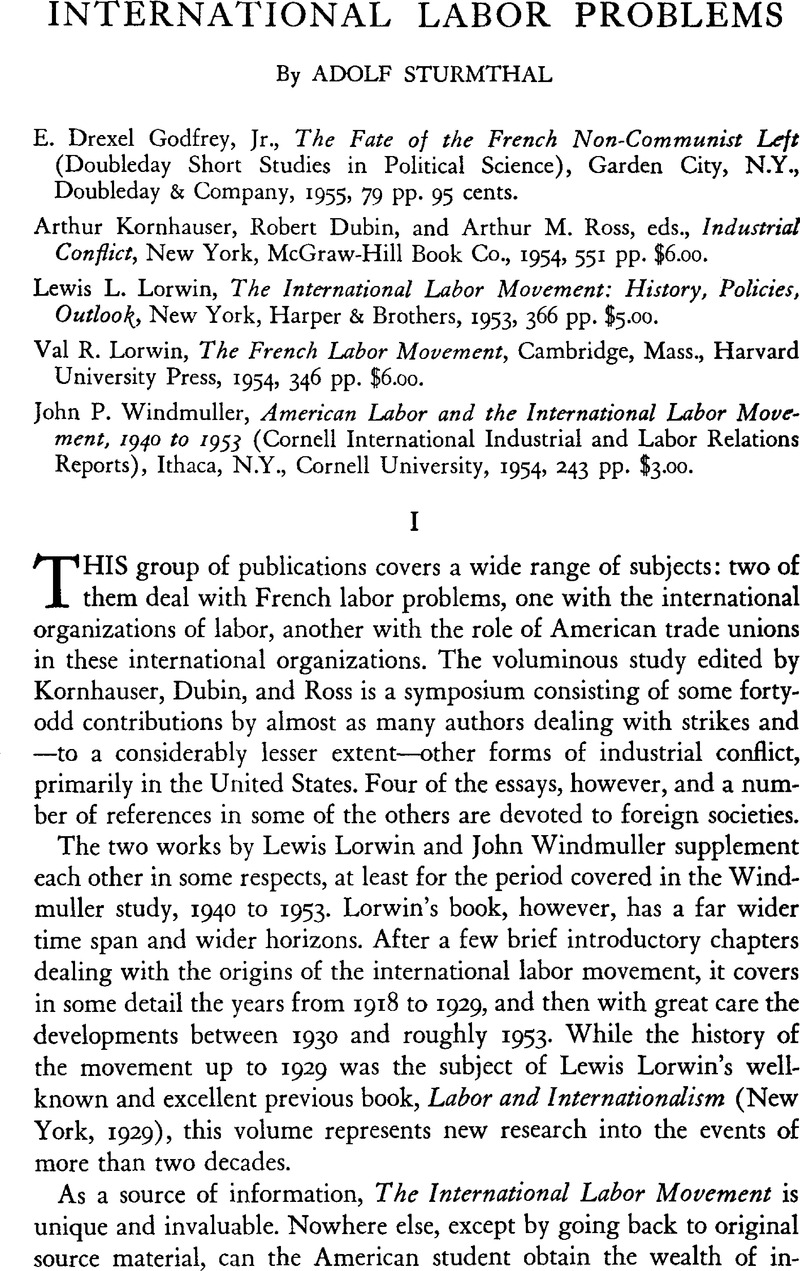No CrossRef data available.
Article contents
International Labor Problems
Published online by Cambridge University Press: 18 July 2011
Abstract

- Type
- Review Articles
- Information
- Copyright
- Copyright © Trustees of Princeton University 1956
References
1 Among the very few minor errors I have discovered is the dubious description of the Popular Front government in France as a “united front” (p. 37, n. i), a term that has a specific meaning in labor history; the consistent misspelling of Vicente Lombardo Toledano's first name (e.g., pp. 64, 142, 185); and the incorrect reference to the reconstituted Second International as the Labor and Socialist International (p. II). The latter name was given to the organization formed by the merger of the Second International and the Viennese Union in 1923.
2 The conventional belief seems to be that Communists always intensify industrial strife in non-Communist countries. Actually, Communist behavior is far more flexible than most American authors tend to assume.
3 Another instance is Val Lorwin's statement: “There are no one-man unions in France” (p. 164). The mere addition of the words “as in the United States” would make this an example of explicit comparison, and not even an insignificant one.




